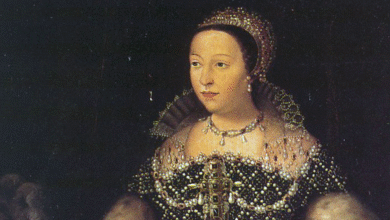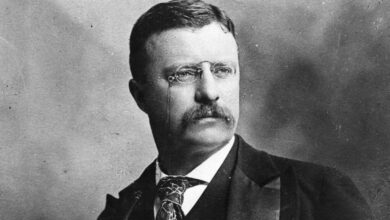Ulysses S. Grant
Ulysses S. Grant Biography
Born on 27 April 1822 in Point Pleasant, Ohio, Hiram Ulysses Grant was a United States general and commander during the American Civil War for the Union armies and later became the 18th president of the United States. His father, Jesse Root Grant, was a tanner as well as a businessman, and Ulysses was his firstborn son. He grew up in Georgetown, Ohio, experiencing a fairly nondescript childhood. However, as a child, he was deeply interested in horses and showed great promise as a horseman. As a youth, he was timid and reserved, taking after his mother more than his father, who was quite outgoing.
The thought of working at his father’s tannery business was not one that Ulysses savoured and
At the age of seventeen, his father orchestrated a way for Ulysses to enter the U.S. Military Academy at West Point, which was quite an honour. The school incorrectly wrote his name as Ulysses S Grant. To avoid being rejected by the school, Grant accepted it as his new name. Ulysses did not excel at West Point, earning average grades and incurring demerits for poor dress and tardiness. He excelled at horsemanship and performed well in mathematics and geology, but ultimately decided that the Academy was not for him. He graduated in 1843, 21st out of 39 students, and was happy to be rid of the place. Initially, his plan was to leave the military after serving his mandatory four years of active duty.
After graduating as a lieutenant, Ulysses met his future wife Julia Dent in St. Louis, Missouri. He proposed, and she accepted in 1844. However, before they could get married, he was sent to serve in the Mexican-American War. During this war, Grant served as a quartermaster, overseeing the efficient movement of supplies. Learning from other generals, he had the opportunity to lead in combat and was credited for bravery under fire.
During this time, he felt that the war was wrong, seeing that its only purpose was to increase America’s territory as well as slavery.
After a long four-year engagement, Julia and Ulysses were married in 1848. They ended up having four children over a six-year period. He was sent to Fort Vancouver, now located in Washington State. Because he loved his family, he wanted to get them to the West Coast to be closer to him, but unfortunately, he failed at several business ventures. Feeling depressed, he drank, which gave him an ill-fated reputation that he carried throughout his military career.
In 1854, he returned to Missouri as a civilian, ultimately working at his father’s tanning business in 1860, marking a low point in his life.
In 1861, as part of the American Civil War, Confederate troops attacked Fort Sumter. This event inspired Ulysses’ patriotism, and he re-joined the military. At first, he could not earn an appointment, but later commanded the 21st Illinois Volunteer Regiment, which was considered very unscrupulous.
Putting his ragtag band into order, in 1862, Grant’s ground forces took both Fort Henry and Fort Donelson. These battles are considered the earliest notable Union victories of the American Civil War. Grant earned the nickname “Unconditional Surrender Grant”.
Although he won some of the most significant battles of the Civil War, including taking the city of Vicksburg, rumours of Grant’s heavy drinking surrounded him for the rest of his campaign. However, those closest to him said that he was sober and showed extreme focus even in the midst of battle.
Ulysses S Grant was different from most of his predecessors. Whereas others believed that taking territory was pivotal to winning the war, Grant believed that disabling the Confederate armies was most important and, because of this belief, focused on destroying General Robert E. Lee’s army in Northern Virginia.
Lee’s army surrendered on April 9, 1865, which marked the end of the Civil War. Robert E. Lee and Ulysses S. Grant met at a farm near the town of Appomattox, Virginia, to sign a peace agreement.
After the war, when the states were reorganising, Ulysses was promoted to full general. In 1868, he was elected as the 18th president of the United States. When he assumed his position, he was forty-six years old, being the youngest president up until that time. Although he himself was honest, Grant had a knack for appointing people with corrupt character. He helped to establish the National Park Service but had unfortunate scandals throughout both presidential terms, not serving a third.
Once Grant left the White House, he was again unsuccessful in civilian life. He became a partner of a financial firm, where, regrettably, his partner Ferdinand Ward stole their investors’ money. Inevitably, the firm went bankrupt, as did Grant, although he had a military pension; however, he was woefully short of cash. In 1884, Ulysses learned that he had throat cancer and needed to earn some money, so he began publishing a series of short magazine articles about his life. Later, his friend, the author Mark Twain, helped him to get two volumes of his memoirs published. It became a classic work of American literature and earned him and his family nearly $450,000 USD.
Knowing that he was near death, Grant’s family, including his wife Julia, all of his children, and three grandchildren, came to see him. He died of cancer on July 23, 1885, at the age of 63. Grant’s body is now entombed in the General Grant National Memorial, which is the largest mausoleum in North America.
Ulysses S. Grant is considered one of the greatest generals in American history. He helped bring peace during a tense time in the Civil War, contributed to the end of slavery in the US, and ultimately saved the lives of millions of people throughout generations.
Ulysses S. Grant FAQ
Ulysses S. Grant was the 18th President of the United States and the leading Union general during the American Civil War. He is remembered for securing major victories that contributed to the conflict’s resolution and for overseeing Reconstruction as president.
Grant led the Union Army to key victories, including at Vicksburg and Appomattox. His relentless and coordinated military strategy was crucial to the defeat of the Confederacy.
As president (1869–1877), Grant worked to protect the civil rights of formerly enslaved people and fought against the Ku Klux Klan. His administration, however, was plagued by political scandals and corruption.
Grant is recognised as a military hero and a president who made strong efforts to reunite the nation and promote racial justice, despite struggles with political mismanagement and a tarnished reputation in earlier historical assessments.
[this article originally appeared on 5MinuteBiographies.com on 25 October 2018]






